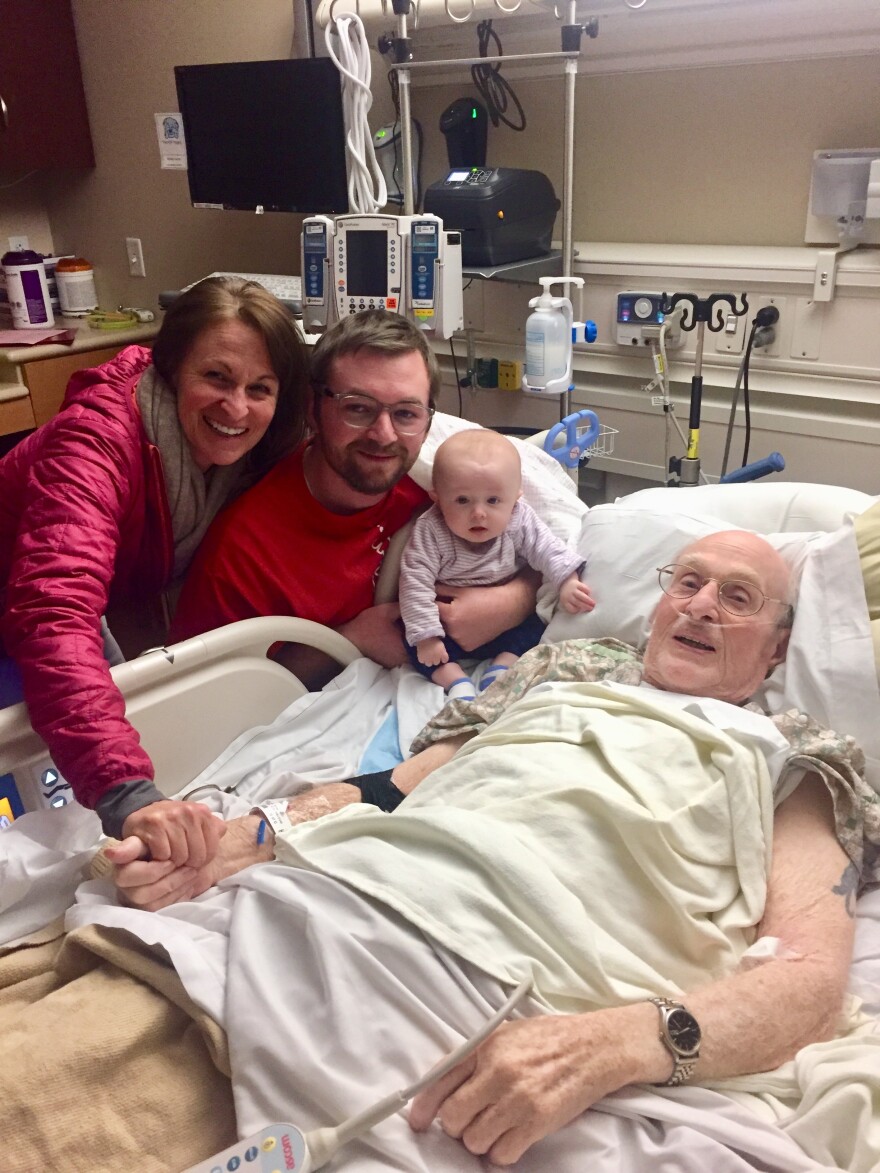Most of the time, Brian Zenger would identify himself as an MD-PhD student. But some nights, he’s simply a volunteer at the University of Utah Hospital. On these nights, when he’s called, his sole job is to spend 3 hours just being with someone while they’re dying.
“I usually arrive at the hospital late at night. It’s quiet, peaceful, dark. I notice that everything is in order…”
Zenger is co-director of an organization at the University of Utah dedicated to making sure no one dies alone in the hospital. He says he does this work because of his father who was diagnosed with cancer when Zenger was 19 years old. He was a pulmonary critical care intensivist. When he died, Zenger learned what an important role his father played for so many people at the end of their lives.
“At his funeral, I experienced patients and their families, and loved ones, coming up and thanking me for what my dad did while their loved one was dying, and that was really special to me," Zenger said. "Even if I can gain just a fraction of that ability is something I think every healthcare provider should have."
But as important as it is to Zenger, there is nothing in his medical training to prepare him for this.
“There’s no classical education on this topic. I think it’s important that we start engaging in truly educating the healthcare professionals that are taking care of these patients, focusing more on goal-centered care, rather than trying to fix a problem and then moving on,” he said.
The No One Dies Alone program has opened conversations not just among healthcare providers, but among the volunteers who have stepped up to participate.
“We have a real denial around death as a culture…”
That’s volunteer Mindy Relyea, a certified end-of-life doula. Relyea says most people are so disconnected from death, that they don’t know how to have the conversations that could help them have a better end of life experience. Fear and lack of knowledge prevent them from making conscious choices about what they want. Relyea got training online and with the Zen Hospice Project, but she still needed experience. The No One Dies Alone program was her chance.
“Well the first thing I discovered was a huge amount of fear, and that was unexpected because I had all this training, but when I showed up for people, I had a suffocating amount of fear,” Relyea said.

She had to confront her feelings about death. She had to learn about self-care. And in her words, she had to befriend her fear. Once she was able to do that, she discovered the power of what she had to offer.
“This is sacred, hallowed ground, and people are so grateful," Relyea said. "They are so incredibly grateful, to have the warmth and the compassion of another human being beside them as they are taking their last breaths.”
This work got personal when Relyea found out last year that her father had stage 4 cancer that had spread to several parts of his body. The medical team at Huntsman Cancer Institute told the family it was time to prepare for death. Relyea was ready for this conversation.
“My dad’s last wishes, his last 3, he wanted to be home, and he wanted his pain managed, and he wanted to be surrounded by his loved ones,” she said.
Relyea’s father was surprised to learn that he could live at home, getting the medical attention he needed from hospice care. He lived for 6 weeks in his home, sharing meals with family, looking out his window, telling stories about his life, and saying his good-byes.
“Because of my end-of-life work, we were able to give my dad the exact end-of-life experience that he wanted, I got to be there for him, and I got to be present with him, even though there were really, really, hard moments, I chose to stay," Relyea said. "And because of my training around self-care, I knew when I needed to go so that I could take care of myself, that I needed to stay with him and be present, and the greatest gift that has come to me is that I have no regrets, not one regret. I wouldn’t do anything differently.”
Relyea says embracing death has allowed her to more fully celebrate life. And she is even more committed to bringing this conversation to her community. Relyea is planning a symposium at the end of this year that will bring together people from all walks of life to talk about death and dying.
Support for Diagnosed has been provided in part by our members and Intermountain Budge Clinic, a multi-specialty clinic offering care for every member of your family in one location. Details found here.


